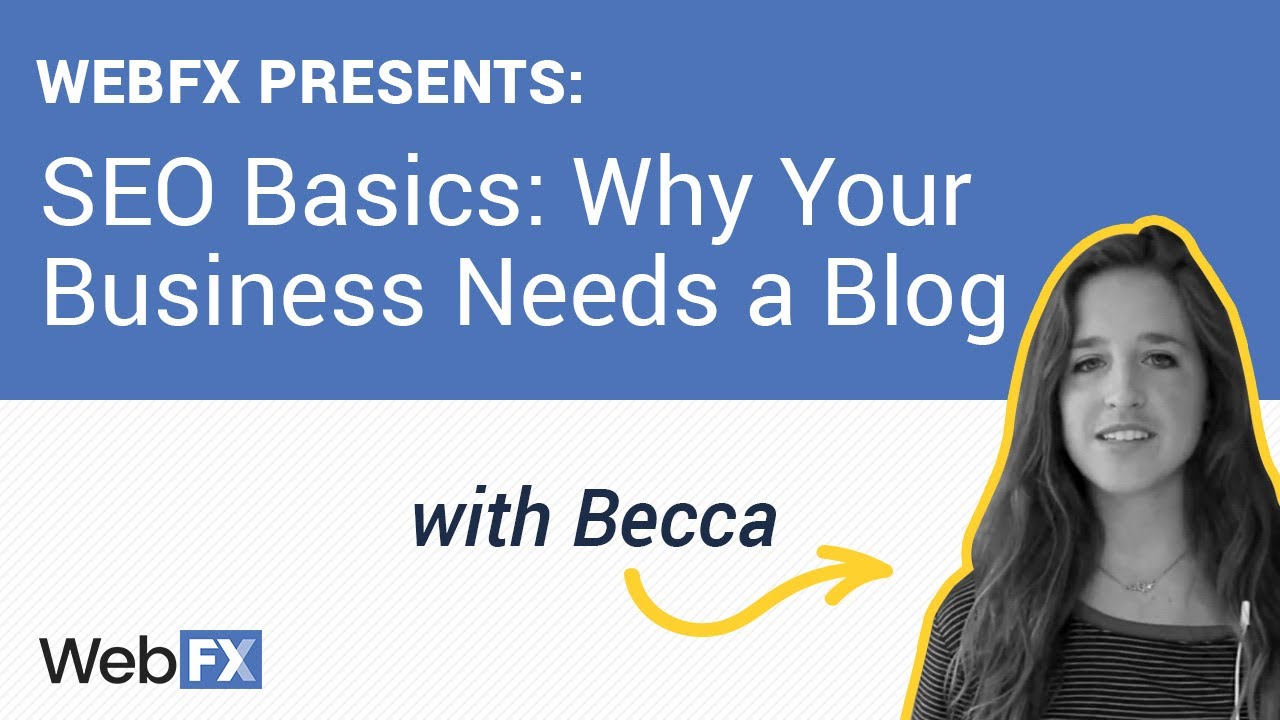Only about half of small businesses (49%) spend moneyon SEOto help people find them.
SEOis important for many small businesses' websites, but they don't know where to start.
If you don't know what you're doing, SEOcan be hard, take a lot of time, and be overwhelming.
But if you ask some experts for help, you'll be well on your way to success.
Since only half of small businesses use SEO, you can get a huge advantage over your local competitors who don't.
These tips for SEO for small business blogswill make your life much easier and help you beat your competitors.

SEO Basics: Why Your Business Needs a Blog
What Is Business Blogging?
Businessblogging is a type of content marketingthat raises the online visibility of a business.
Think of a business blog as another way to market your business, just like social media, email marketing, PPC, etc., so you can reach new customers and keep in touch with the ones you already have.
Contentmarketing is a very effective way to market your business. It has a high return on investment, costs 62% less than traditional marketing, and brings in 3 times as many leads.
If you've thought that blogging is a waste of time in the past, this post will make you think again. It will show you why business blogging should be part of your content marketing plan.
SEO For Small Business Blogs
In the 1990s, people used blogs to share personal stories online like a digital diary.
Blogs have advanced in recent years.
Blogging isn't just for moms. No!
Many businesses in many industries make $70,000 or more per month from SEO-driven blog traffic that converts to sales.
My former content agency, Express Writers, is a case study.
Exception? SEO matters. SEO blogging is important.
It means making a website and its content easy for Google to read, rank, and index.
SEO isn't just Google's bots.
Most ranking factors focus on user experience.
The goal is to please both human readers and Google.
Breaking up large blocks of text with headings, subheadings, and graphics allows your audience to skim and bots to quickly understand and categorize your content.
Using keywords helps Google find your content when someone searches.
Google will then list your article based on its quality (SERP).
SEO is a balancing act.
If you write for humans, you're missing keywords.
Most writers avoid repeating words and phrases, so Google may not find your content.
If you only write for Google, your content won't be interesting.
It will sound stiff, robotic, and repetitive, with keywords forced into sentences.
Google's main focus is providing relevant, high-quality content to information seekers.
Keyword stuffing is outdated and a consumer turnoff.
SEO creates the best of both worlds for your content.
Google will categorize and rank your website if it has useful, easy-to-read content.
7 Tips For SEO For Small Business Blogs

Make Sure Your Website Is Mobile-Friendly
Google said in 2015 that they would lower the rankings of websites that aren't made for mobile devices.
If your website isn't mobile-friendly, Google's organic traffic to it could drop by a lot.
So, make sure your blog posts are easy and quick to read on smartphones by using short paragraphs and sentences, bullet points when appropriate, and pictures with links when possible (like infographics).
So, it will be easier for the reader to find all the great contentyou made just for them on their phone.
Mobile-Friendly Test: Google's rules say that this post should show up as "mobile-friendly."
Include Keywords In Page Titles, Headings, And Content
Including keywords in your blog post content, page title, and headings will help you rank higher on search engines.
You'll want to make sure that all of these keywords work well together so that they read as naturally as possible.
You don't want to put too many keywords in it and make it hard to read.
Google will punish you if you use too many keywords, so keep it natural.
As a general rule, you should use one main keyword and two or three other keywords.
All of these should have something to do with your content.
Your main keyword should be in the title, one of the headers, the main content, and the conclusion.
Then, add the secondary keywords in a natural way.
Optimize Your Images With The Right File Name And Alt-Text
Make sure blog images count.
Ensure each image has the right file name and alt text to maximize its use.
How so?
Google will read your alt text to figure out what the image is, so helping it will boost your SEO.
Don't add text, make it image-related.
Whenever possible, include a keyword.
A blog post usually has images.
We recommend 3 per 500 words.
It breaks up paragraphs.
Each image should be relevant to the blog post's topic.
The file name should be descriptive, like "blog-image-one."
Google will penalize you for adding random numbers if it's spammy.
Link To Other Relevant Articles On Your Site And Offsite
This seems tricky, but it's easy.
Anchor links are hyperlinked phrases that link to related articles on your site or offsite resources.
Here are two examples:
Internal Backlink - If we naturally included this in our post, it would be an internal link because it links to our website on another blog we wrote.
External Backlink - 53% of mobile users will abandon a page if it takes longer than three seconds to load. This is an external link because we provided a source for our statistics, but it goes to a different website.
Your blog needs both.
Use Social Media Platforms To Share Your Blog
Globally, 3.6 billion people use social media.
If you don't share your content on social media, you're losing traffic.
Social media boosts blog traffic.
Facebook, Twitter, LinkedIn, and Pinterest are great for sharing blog posts because you can do so on multiple networks at once.
Social media can double blog traffic.
To maximize this strategy, add a custom description with relevant keywords and tags when sharing blogs on Facebook or Twitter.
Create A Google My Business Page For SEO And More Traffic
Google My Business boosts SEO and website traffic.
Many small businesses don't realize how important a Google my business (GMB) profile is, especially if they want organic search traffic.
Go here, log into or create a google account, then follow the steps on that site.
The process takes about five minutes and has many benefits.
Free, too!
Write Original Content That Is Engaging And Interesting
Your blog should engage customers and drive business.
You don't want people to click on your blog because of the title but only spend 10 seconds there.
For maximum engagement, write 1000-word blog posts.
Don't forget images, videos, etc.
Visual content engages readers much better than plain text alone.
Getting blog comments can be important.
If readers see others commenting on your post, they'll be more likely to comment themselves.
After all, blogging is about engagement, not just getting people to click on pages because of catchy titles.
People Also Ask
Does SEO Work For Small Business?
So, does SEO for small businesses work?
The answer to this question is yes, which shouldn't be a surprise.
Search engines use complicated algorithms to give people exactly what they are looking for. This means that if you have useful content, you can compete with both small businesses and big companies.
Why Is SEO Necessary For Your Blog?
Use the power of SEO to: Find your target audience more accurately, getting better results than ads.
You'll save moneyif you do your own research and write your own campaign.
Make sure that your SEO campaigns are aimed at the kind of reader you want to come to your blog.
Is SEO Writing Hard?
SEO is not as hard as people make it out to be. You can do 95% of the work with 5% of the effort, and you do not need to hire a professional SEO to do it. It will also not be hard to start ranking for well-chosen key terms.
Conclusion
The content strategyof your small business is a key part of its online success.
Just writing blog posts isn't enough to get them to rank on the SERPs. You also have to play the SEO game.
Follow these tips on how towrite and rank content for a small business, and you'll have high-quality content that is optimized in no time.

